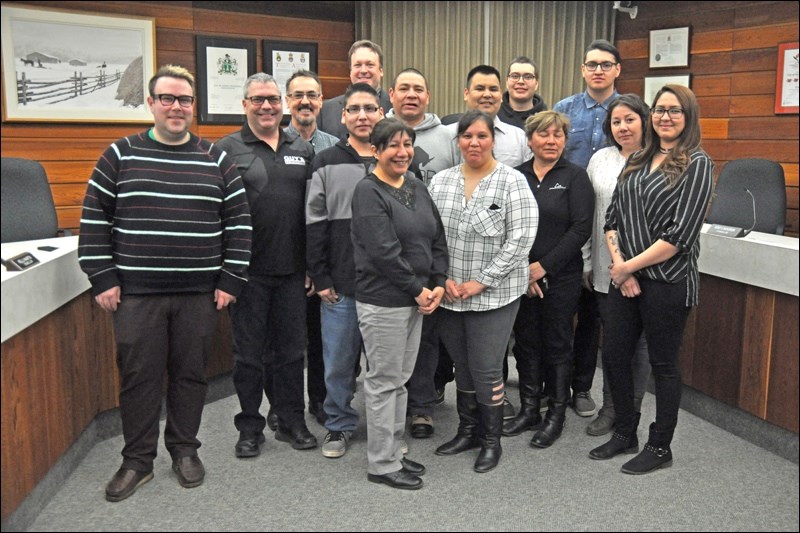The City of North Battleford is touting the next step forward for their economic partnership with Battlefords Agency Tribal Chiefs.
As part of the CEDI-Community Economic Development Initiative between the city and tribal council, they have launched their Joint Indigenous Employment Strategy as of April 2.
Starting that day, work experience staff from BATC, selected by both partners based on their skill levels, were to commence their work placement at the City of North Battleford.
They were to be assigned work experience positions with the city for six weeks, paid for through a program with BATC.
After the May long weekend, the work experience placements come to an end and the individuals will then move over to summer staff positions with the city’s Parks Department running until the end of August. There is also the possibility they could stay on for a second city project in September.
The Joint Indigenous Employment Strategy program kicked off Monday with a lunch at City Hall, which included the eight work placement participants. The participants enjoyed pizza alongside city administration and staff, as well as council members.
City manager Jim Puffalt, who still has another month to go before he leaves for his new position in Moose Jaw, expressed enthusiasm for the arrangement, which is the first municipal community-tribal council partnership in Canada.
In speaking to reporters following the March 26 council meeting, Puffalt said he expects it will be a win-win situation for both sides. From the city’s perspective, they will be able to train a pool of potential workers who will be able to step in and fill vacancies in the future.
It will also mean the city can move forward with their efforts to diversify the city’s workforce.
“We want to be representative of the demographics of the community,” said Puffalt. He explained 25 percent of the population in the city was of Indigenous descent. The city’s own workforce was between 11-14 percent Indigenous, so “we want to get a little closer to demographics,” he said.
Puffalt noted the work placements will receive a well-rounded understanding of what the city does and whether it might be a good career for them. As well, Puffalt said the initiative “shows the community that working together with our neighbours can create great opportunities.”



